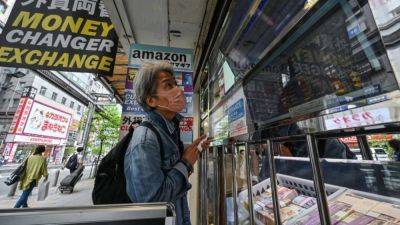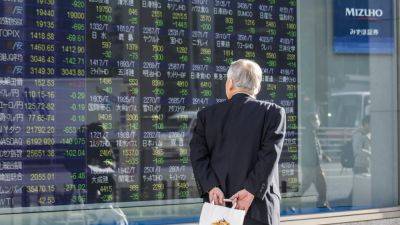UBS says 'going into Japan now is like catching a falling knife,' warns stock sell-off will continue
Going into the Japanese market at this moment is akin to catching "a falling knife," Kelvin Tay, regional chief investment officer at UBS Global Wealth Management, told CNBC's "Squawk Box Asia."
His comments come as the Nikkei 225 and the Topix extended their declines, falling past 12% and into bear market territory. The Nikkei's 12.4% loss was its worst day since the "Black Monday" of 1987.
"The only reason why the Japanese market is up so strongly in the last two years is because the Japanese yen has been very, very weak. Once it reverses, you got to get out right and I think they're all getting out right now as a result of that," Tay said.
The yen, which weakened to a 38-year low of 161.99 against the U.S. dollar in June, reversed course during the run-up to the Bank of Japan's policy meeting.
It strengthened sharply after the BOJ raised its benchmark interest rate last week to around 0.25% and decided to trim its purchases of Japanese government bonds.
Currently, the yen was last trading at 144.82, its lowest level against the greenback since January. A stronger yen pressurizes Japanese stock markets, which are heavily dominated by trading houses and export-oriented firms by eroding their competitiveness.
BOJ governor Kazuo Ueda had struck a hawkish tone during his press conference after the bank's July 31 meeting, saying that "if the economy and prices move in line with our projection, we will continue to raise interest rates," according to Reuters.
He also said there was "still quite some distance" before its policy rate reaches a neutral level that neither cools nor overheats the economy.
Ueda also saidthe 0.5% interest rate level — Japan has not seen that since 2008 — was not a barrier, and rates could go even higher.
Ta






